第96章 CHAPTER IV.
Charles II., King of England.--How Interest Can Give Memory.--His Grievances against France.--The Two Daughters of the Duke of York.--William of Orange Marries One, in Spite of the Opposition of the King.--Great Joy of the Allies.--How the King of England Understands Peace.--Saying of the King.--Preparations for War.
The King, Charles Stuart, who reigned in England since the death of the usurper, Cromwell, was a grandson of Henri IV., just as much as our King.
Charles II. displayed the pronounced penchant of Henri IV. for the ladies and for pleasure; but he had neither his energy, nor his genial temper, nor his amiable frankness. After the death of Henrietta of England, his beloved sister, he remained for some time longer our ally, but only to take great advantage from our union and alliance. He had made use of it against the Dutch, his naval and commercial rivals, and had compelled them, by the aid of the King of France (then his friend), to reimburse him a sum of twenty-six millions, and to pay him, further, an annual tribute of twelve or fifteen thousand livres for the right of fishing round his island domains.
All these things being obtained, be seemed to recollect that Cardinal de Richelieu had not protected his father, Stuart; that the Cardinal Mazarin had declared for Cromwell in his triumph; that the Court of France had indecently gone into mourning for that robber; that there had been granted neither guards, nor palace, nor homages of state to the Queen, his mother, although daughter and sister of two French kings; that this Queen, in a modest retirement--sometimes in a cell in the convent of Chaillot, sometimes in her little pavilion at Colombesl--had died, poisoned by her physician, without the orator, Bossuet, having even frowned at it in the funeral oration;[Mademoiselle de Montpensier, in her Memoirs, says that this Queen, already languishing, had lost her sleep, and was given soporific pills, on account of which Henrietta of France awoke no more; but it is probable that the servants, and not the doctors, committed this blunder.] that the unfortunate Henrietta daughter of this Queen and first wife of Monsieur had succumbed to the horrible tortures of a poisoning even more visible and manifest; whilst her poisoners, who were well known, had never been in the least blamed or disgraced.
On all these arguments, with more or less foundation, Charles II. managed to conclude that he ought to detach himself from France, who was not helpful enough; and, by deserting us, he excited universal joy amongst his subjects, who were constantly jealous of us.
Charles Stuart had had children by his mistresses; he had had none by the Queen, his wife. The presumptive heir to the Crown was the Duke of York, his Majesty's only brother.
The Duke of York, son-in-law--as I have noticed already--of our good Chancellor, Lord Hyde, had himself only two daughters, equally beautiful, who, according to the laws of those islanders, would bear the sceptre in turn.
Our King, who read in the future, was thinking of marrying these two princesses conformably with our interests, when the Prince of Orange crossed the sea, and went formally to ask the hand of the elder of his uncle.
Informed of this proceeding, the King at once sent M. de Croissy-Colbert to the Duke of York, to induce him to interfere and refuse his daughter;but, in royal families, it is always the head who makes and decides marriages. William of Orange obtained his charming cousin Mary, and acquired that day the expectation of the Protestant throne, which was his ambition.
At the news of this marriage, the allies, that is to say, all the King's enemies, had an outburst of satisfaction, and gave themselves up to puerile jubilations. The King of Great Britain stood definitely on their side; he made common cause with them, and soon there appeared in the political world an audacious document signed by this prince, in which, from the retreat of his island, the empire of fogs, he dared to demand peace from Louis of Bourbon, his ancient ally and his cousin german, imposing on him the most revolting conditions.
According to the English monarch, France ought to restore to the Spaniards, first Sicily, and, further, the towns of Charleroi, Ath, Courtrai, Condo, Saint Guilain, Tournai, and Valenciennes, as a condition of retaining Franche-Comte; moreover, France was compelled to give up Lorraine to the Duke Charles, and places in German Alsace to the Emperor.
The King replied that "too much was too much." He referred the decision of his difficulties to the fortune of war, and collected fresh soldiers.
Then, without further delay, England and the States General signed a particular treaty at La Hague, to constrain France (or, rather, her ruler) to accept the propositions that his pride refused to hear.